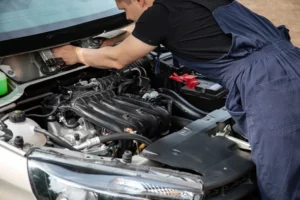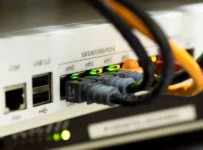
ABS is one of the most crucial driving aids associated with braking in vehicles. The Anti-Braking system (ABS) has been there for a long time, and the benefits of using it are enormous.
However, many people do not know enough about ABS, and when something happens, they may be confused.
Understanding the ABS, what happens, and when is crucial for you will help you understand your car better and diagnose various problems related to the ABS.
Like other vehicle parts, an ABS may fail and cause problems. In this article, you will find answers to the question,
Can a bad ABS sensor cause vibration?
Yes, a bad ABS sensor will cause vibration in various parts of your car. An ABS sensor detects the speed on your car wheels and sends the data to an ABS console which reacts by controlling the braking function when you apply your foot on the pedal.
As a result, the ABS console can control how much braking force is applied on the wheels to avoid abrupt braking and skidding. This function happens within a fraction of a second, and it is continuous.
However, when the sensor is faulty, it will send wrong information to its console, which in return, will execute false functions on the brakes. The result will be vibration on the brake pedal due to the intervention of the ABS console.
It is also possible to experience vibration on the car as the ABS will interfere with braking, affecting suspension and vehicle handling.
How Does An ABS Sensor Work?
An ABS sensor is located near the wheel brakes and detects the speeds and behavior of the wheels.
The ABS also called the Anti-braking system, is designed to aid and enable proper braking in cars.
It works by intervening when you brake and regulating how much braking pressure is sent to the wheels, maintaining stability and preventing skidding.
To do this, the ABS sensor monitors your wheels’ behavior, and speed sends that information to an ABS console, which processes the data and acts immediately to control braking.
Since braking happens very fast, the ABS sensor must work well by sending fast and accurate signals to the console to respond at the right time.
Signs Of A Faulty ABS Sensor
Here are signs that will tell if your ABS sensor is bad.
1. ABS Light
An ABS light should be on at a specific time and go off at another. Usually, when your car is stationary, the ABS light will be on, but it will go off as soon as you start moving. When you reach speeds of 20kph, the light will go off.
However, when you realize that your ABS light is staying on all the time, then that is a sign that something is wrong with your ABS. That can be the ABS sensor.
2. Stability and Traction Lights
The ABS sensor is not just used for the ABS alone in some cars. The ABS wheel sensor also sends vital information to many modern cars’ stability and traction control systems. As a result, if the sensor is bad, the stability and traction control warning light will come on.
3. Pumping Feel on Pedal when Braking
Each wheel of your car has an ABS sensor. This way, the ABS can get feedback from each wheel on speed and braking.
If one of the sensors is faulty, it will send incorrect information to the ABS, intervening even though the car is not sliding.
When an ABS control system intervenes during braking, you will experience a pumping action on the pedal.
When you feel too much pulsating on your brake pedal, even when gently braking, then it may be a sign of a faulty ABS sensor.
4. Stability and Traction Control Loss
The information collected by an ABS sensor has many applications. Some of this information is sent to the car’s computer system to enable hill-start assistance, traction control, roll stability, and stability control.
As a result, a faulty ABS sensor will send wrong information, which will affect stability and traction.
In some cases, you may experience traction or stability problems when you are experiencing the car to intervene and the ABS lights are off. That can signify a failing ABS sensor affecting traction control systems.
5. No Anti-Lock Capabilities
One of the main functions of an ABS sensor is to communicate to the ABS to know when to activate the anti-lock.
Wrong information, no information, or delayed information will affect this person. As a result, you will slide hence engaging emergency brakes. This is a sign of a failing ABS sensor.
Where Is The ABS Sensor Located?
Different vehicles will have different amounts of such sensors. However, the sensor is found behind your brake rotor. For some cars, it may be located on the wheel axle.
A car will have one ABS sensor on each of its wheels. However, there are cars whose systems have three sensors. You will find one on its rear axle and two on each front wheel for such a car.
Since there are different ABS systems, it affects the number of sensors. For a Two-channel ABS, it has four sensors, one per wheel.
On the other hand, a three-channel ABS has three sensors, two on the front and one in the rear.
You must understand your car ABS type to help you diagnose any problem easily.
What Can Make An ABS Sensor Fail?
ABS Sensors are very delicate compared to other parts, especially around a car’s wheels. ABS sensors are very sensitive, which helps them to detect crucial things within a short time.
The sensors are also delicate in their structure and must be well protected.
Here are a few things that may make an ABS sensor fail.
1. Faulty Wiring
ABS sensors are connected to the car’s source of power. As a result, any problem with the power supply can easily affect their function.
In some cases, it may be corroded wires, incomplete connections resulting from a tear, or a faulty loose connection.
2. Faulty Fuse
The ABS is a system that has its fuse system in a car. In cases where a fuse is dead or faulty, power is not well supplied and regulated to the ABS. This can easily make an ABS sensor fail.
3. Physical Damage
Physical damage of ABS sensors is a common cause. The sensors are not made of very strong material to work effectively.
As a result, any mechanic bruise or hit may cause damage that will affect their functioning. In some cases, you may not know whether you have physically damaged your ABS sensor, which is why it is crucial to inspect them once in a while.
4. Loose Fixing
This happens mostly after a while change or reinstalling the sensors. If your ABS sensors have been removed and returned recently, they may fall out of place if not firmly fitted, making them fail.
In other cases, they may become loose as a result of vibrations. However, this is a very rare case, although it is possible.
5. Traction control problems
Traction control on your car relates closely to your ABS. A traction system controls your wheels’ speed making sure they move at the same speeds for maximum traction.
However, when your traction control failures, they spin at different speeds, which can easily make the ABS sensors read and send wrong information from different wheels.
6. Hard Brake Pedal
When your ABS sensor fails, you will experience a hard brake pedal when braking. It happens when the ABS switches off. The sensor is in a bad state at this stage, and the ABS has stopped working.
Is It Okay To Drive With A Bad ABS Sensor?
No. It is not advisable to drive your car when your ABS sensor is faulty. You will be able to drive your car, but when an ABS sensor fails, it affects several things, including your braking, stability, and traction control.
Driving with a faulty ABS sensor can make it difficult to brake, making driving dangerous. Once you notice a problem with your ABS sensor, seek help from a qualified mechanic as soon as possible.
Can I Experience Vibration When My ABS Is Okay And Braking?
Yes. It is possible to experience some vibration when braking, even with your ABS sensor being okay.
The vibration is experienced on the brake pedal as the ABS intervenes and controls the braking force going into the wheels to avoid sliding.
Conclusion
An ABS sensor performs several functions related to a car’s braking and movement. As a result, it is possible to experience vibrations on the car and brake pedal when it fails.
Other things may also fail. As a result, look for the signs discussed above and fix the problem as soon as possible. It is dangerous to drive with a faulty ABS sensor.


